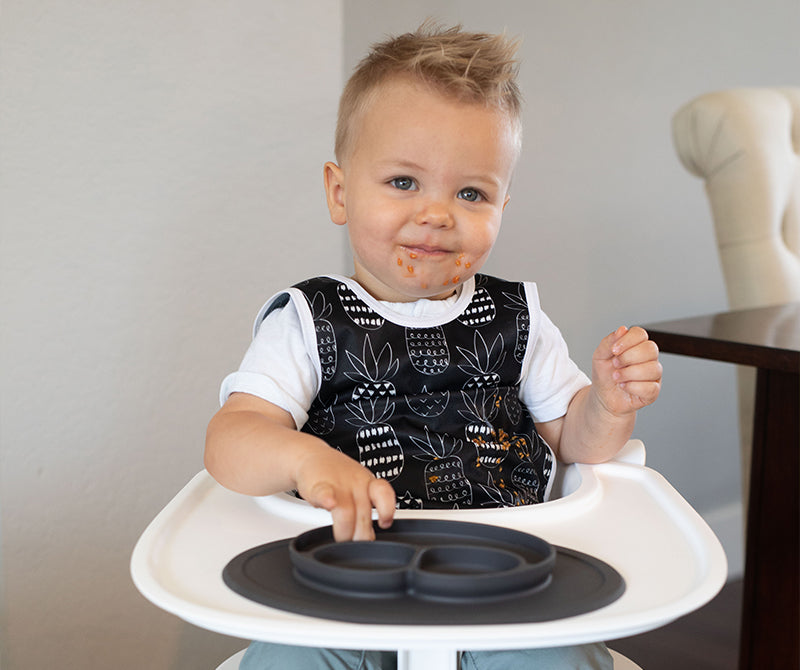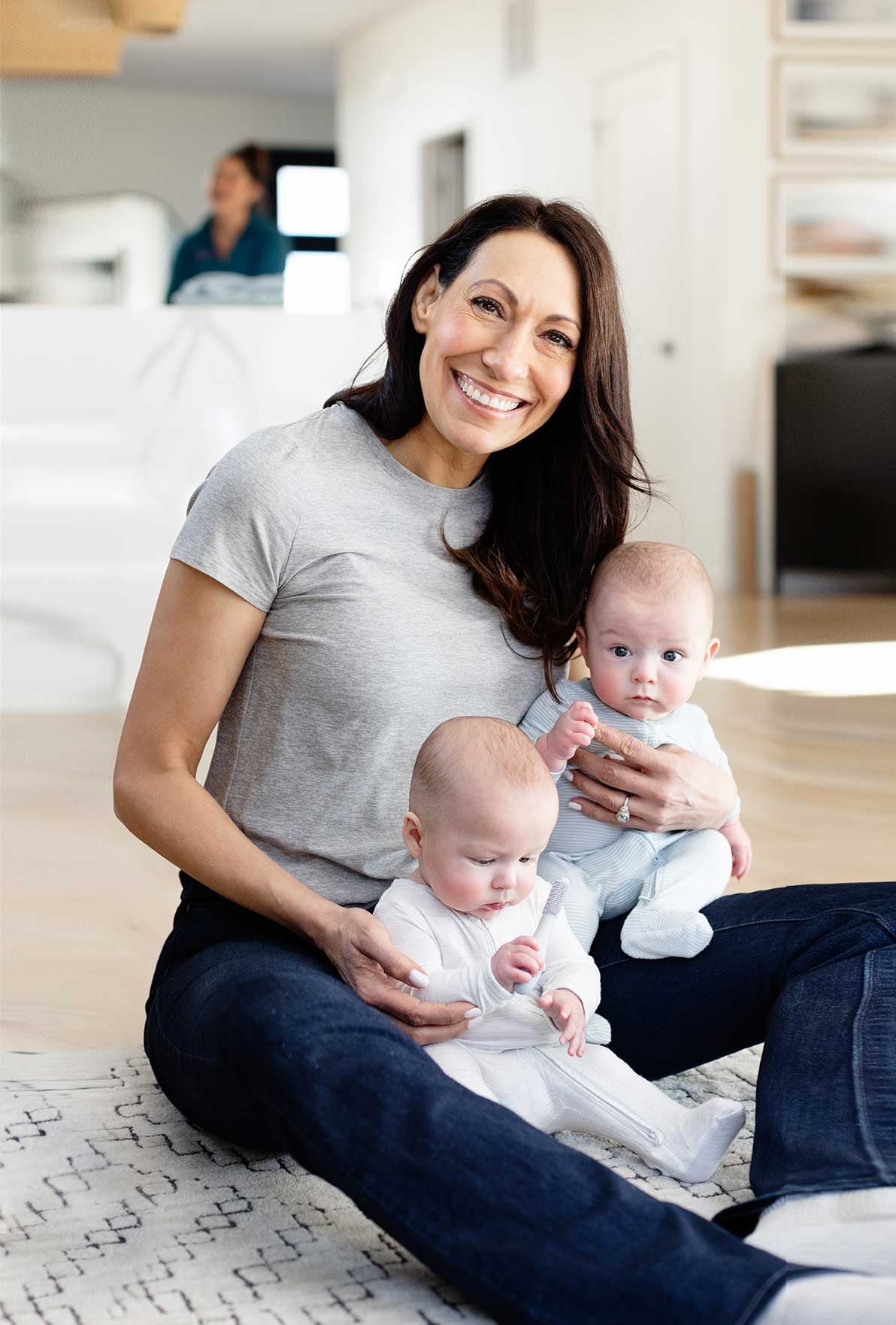Do you have a baby or toddler that loses focus at mealtime because of the mess? Or, do you have a child that has sensory issues when it comes to being damp during meals? If so, I have some tips for overcoming these issues and the products that can help!
Sensory Issues: Sensory processing plays an important role in mealtime success. Children with sensory processing disorder (difficulty processing information from their senses) can become uncomfortable, fearful, distracted or upset when their face or shirt becomes wet when eating or drinking. Here are a few tips to help these children be more successful and adventurous at mealtime:
- Find Enough Coverage: Bibs that only cover the neck area do not help kids with sensory processing disorder (SPD) since they leave the chest, stomach and shoulders exposed. This can sidetrack a meal and cause the child to leave the table before they are full.
- Tying Around the Neck: I have seen kiddos with sensory needs fidget with the traditional tie around the neck because they don’t like the way it feels on their skin. In addition, I have had several feeding therapy clients develop rashes or eczema on the neck due to ties and snaps from bibs. These sensory issues distract from the food, conversation and enjoyment of mealtime.
- Solution: The combination bib + apron from BapronBaby allows your child to explore their food and participate in sensory activities. This is due to a tie around the shoulders (which doesn’t constrict their neck like a traditional bib) and bib coverage from your child’s neck to their hip (which gives them the sensory protection they need). Baprons also have a unique ez-clean fabric that is eco-friendly and waterproof, so you can easily rinse it off in between meals. Take a peek at some of the styles here.
Being Messy: Self-feeding can be messy, and children with SPD can regress in their self-help skills if they are constantly getting messy. In my clinical experience, I consistently see children with SPD refuse to eat unless a parent feeds them; they want to avoid getting messy! To avoid this issue, here are some tips to encourage these children to feed themselves successfully:
- Issues with Inconsistent Self-Feeding Skills: Children with sensory challenges may find it difficult to master some of their developmental feeding milestones. This may be due to sensory issues that cause delays in other areas of feeding such as oral, fine, gross and visual motor skills and/or cognitive concerns. Combined, these delays may make self-feeding inconsistent (one day they can use a utensil, the next day they can’t). This can cause frustration for both the child and parent.
- Issues Knocking Over Bowls + Plates: Some kiddos who have a diagnosis of SPD tend to accidentally knock over bowls, plates, cups and utensils. Having difficulties knowing where their body is in space can delay a child’s ability to build strong feeding skills. It also can decrease a child’s confidence at mealtime and reduce their willingness to try new foods.
- Solution: Since the Mini Mat suctions to the surface, it provides balance and stability for your baby or toddler. In addition, your child can more easily rake up foods, making self-feeding more productive.
I hope these tips help parents and therapists make mealtime more enjoyable for their little one with sensory needs. What are some ways you make mealtime a more sensory friendly experience? #ezpzfun #spd



